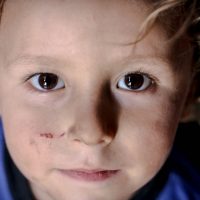
What is child abuse?
Whilst there is no legal definition, the court understands child abuse as any action that seeks to deliberately harm children or put them in danger. Child abuse can be physical or non-physical and can cause children to experience both emotional and physical pain. There are different types of child abuse; child abuse may occur once, or it may happen over a long period. Regardless of how many times the abuse occurred, child abuse can have a devastating impact on those it affects and can have long-lasting results even into adulthood.
Different types of child abuse
Neglect
This happens when a child’s parents or caregivers fail to provide for their child/children. This type of abuse can manifest in various ways. Children may experience emotional neglect that can manifest as an absence of love, care, or support. Children may also experience physical neglect; parents/caregivers may deprive a child of food, proper shelter, and clean clothing or health care. Neglect can endanger children and young people and can have detrimental, long-term effects on their physical and mental well-being.
Child sexual abuse
Child sexual abuse is the coercion of a child into doing sexual activities. Children who experience sexual abuse are too young to understand what is happening to them or to comprehend that it is wrong. There are two types of sexual abuse: contact and non-contact. Contact sexual abuse is when a predator subjects a child to touching, rape or penetration of an object. Non-contact sexual abuse is when a child is subject to abuse without being handled by the abuser. Examples of non-contact sexual abuse involve exposing children to indecent images or flashing either online or in person.
Physical abuse
This type of abuse occurs when an adult causes intentional harm to a child either by hitting, kicking, shaking, burning, intending to break bones, or drowning a child. Physical abuse can leave children with permanent physical and emotional damage. The warning signs of physical abuse can be more overt than other types of child abuse.
Emotional abuse
Examples of emotional abuse include public shaming, humiliation, deliberately scaring a child or isolating and ignoring a child. Typically, emotional abuse is committed simultaneously as another form of abuse including physical or sexual abuse. Emotional abuse can have serious long-term effects on a child which can continue to manifest well into adulthood.
Female genital mutilation (FGM)
Female genital mutilation (FGM) is a procedure whereby part or all of the external female genitalia is removed/injured for no medical reason. In most cases, FGM is performed without anaesthetic and by an inexperienced practitioner. FGM is an extremely painful procedure; it is a crime in the UK to carry out FGM or have it arranged by another person.
Warning signs of child abuse to look out for
Every child’s experience of child abuse will vary from case to case. However, here are some common warning signs of child abuse to look out for. Understanding these warning signs may save a child’s life.
- Sudden changes to their personality/behaviour
- Becoming withdrawn
- Running away
- Behaving aggressively
- Isolating themselves from family and friends
- Covering their body
- Unexplained cuts or bruises on their body
- Demonstrating inappropriate knowledge of adult-related issues
If a child demonstrates one of these warning signs, it does not mean they are suffering from child abuse. There may be other reasons a child seems quiet and withdrawn or has bruises or cuts on their legs. However, if you have a prior feeling that a child is experiencing abuse, being aware of common warning signs could help confirm your suspicions and enable you to help the child.
How to help
If you believe a child is being subject to abuse and wish to report it to someone, you can contact the NSPCC at help@nspcc.org.uk for advice on how to proceed. Alternatively, if you believe a child to be at immediate risk, please call 999.
If you wish to claim compensation for historical child abuse or want to claim on behalf of a child who has recently experienced child abuse, please contact our team of professional, empathetic solicitors for free, confidential advice on 0151 242 5111.
